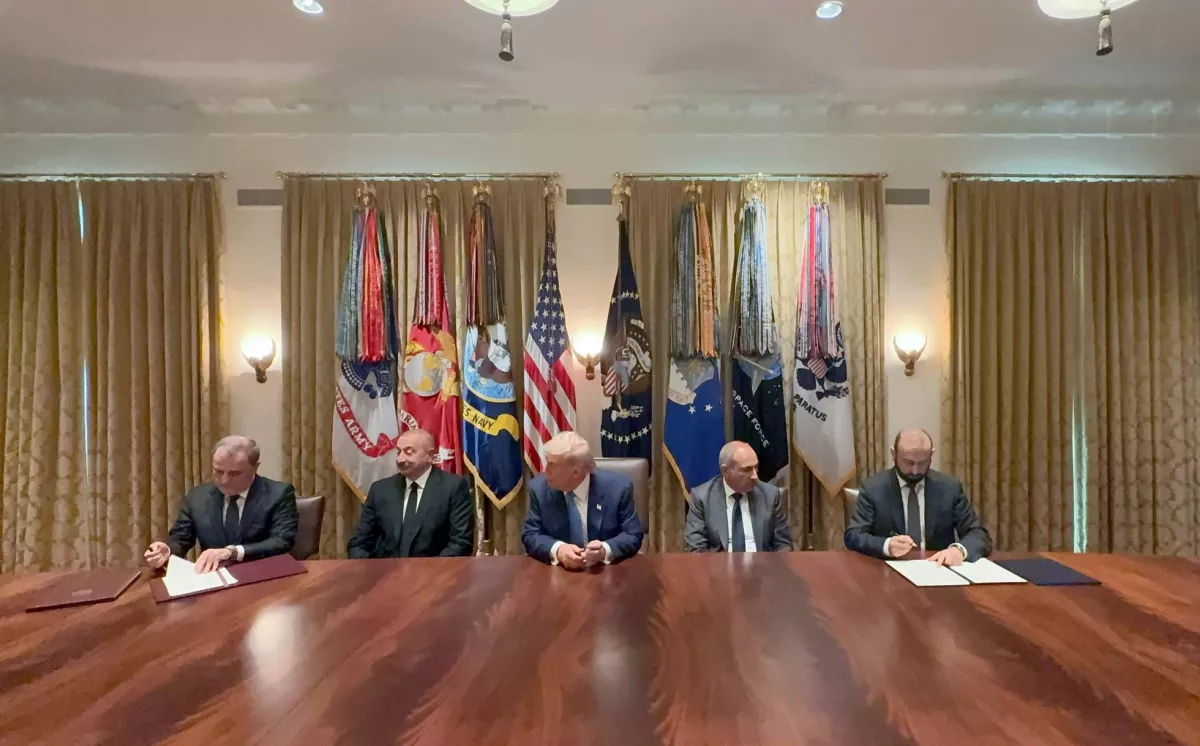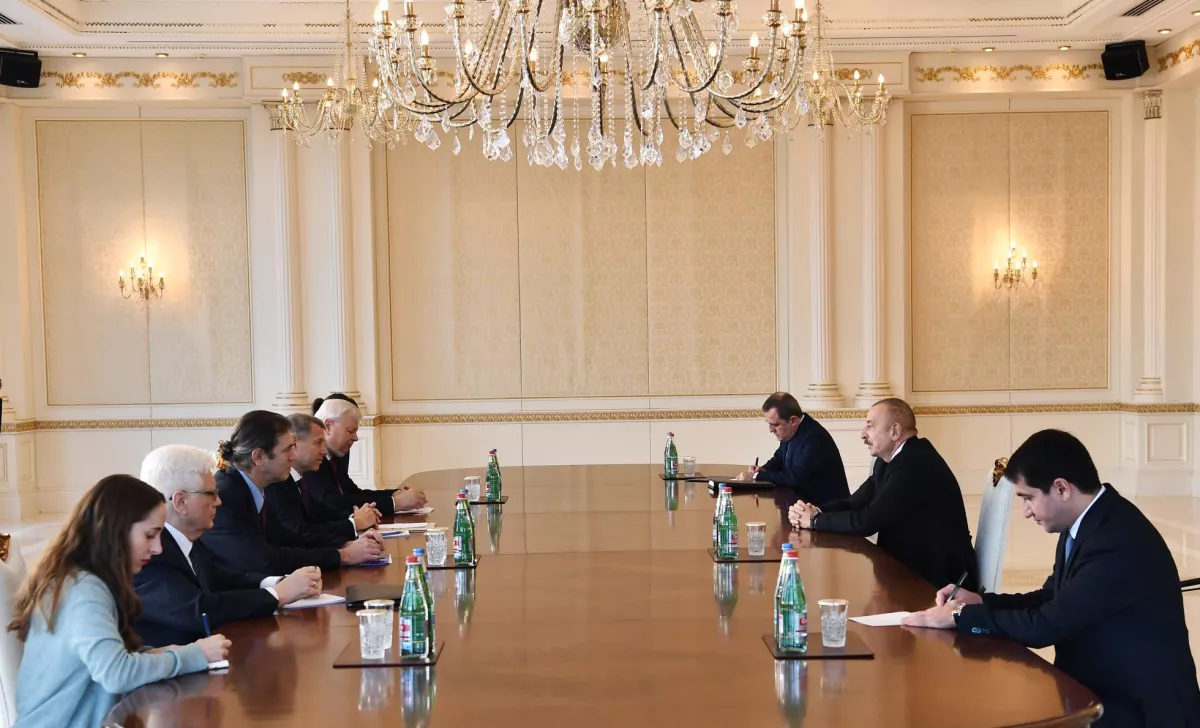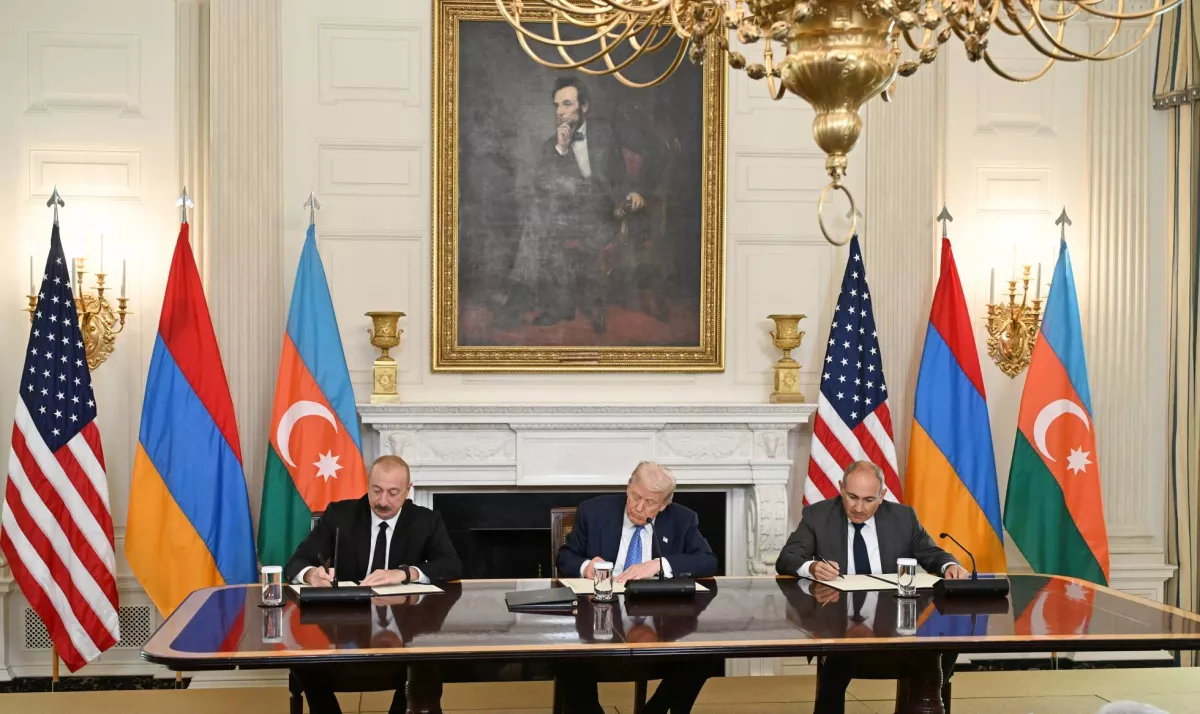Bye-bye, OSCE Minsk Group! The institution that lived off conflict
The notoriously infamous OSCE Minsk Group is approaching its inevitable end.
On August 8, 2025, in Washington, during a meeting between Ilham Aliyev, Donald Trump, and Nikol Pashinyan, the foreign ministers of Azerbaijan and Armenia, Jeyhun Bayramov and Ararat Mirzoyan, initialed a draft “Agreement on the Establishment of Peace and Interstate Relations between the Republic of Azerbaijan and the Republic of Armenia” and signed a joint appeal to the current OSCE Chairperson for the closure of the OSCE Minsk process, the Personal Representative of the OSCE Chairperson for the conflict addressed by the Minsk Conference, and the High-Level Planning Group.

As was revealed yesterday, August 18, this step has already received practical follow-up: Finland, the current OSCE Chair, has announced the start of consultations with participating countries to make a final decision on the closure of the Minsk process, Finnish diplomat Toni Sandell, Deputy Head of the Finnish Chairmanship Task Force, told Report.
Let’s recall that the Minsk Group was established in 1992 to facilitate a peaceful resolution of the Karabakh conflict. For decades, it was regarded as the main international mediator, with the United States, Russia, and France serving as co-chairs. However, throughout its existence, the OSCE Minsk Group failed to achieve any real progress. The Azerbaijani side repeatedly pointed out the ineffectiveness of this structure. All so-called “peace plans” and “roadmaps” remained on paper, while the occupation of Azerbaijani territories continued. Moreover, the Minsk Group’s activities, to some extent, allowed Armenia to maintain control over the occupied lands under the guise of endless negotiations.

Azerbaijan’s President Ilham Aliyev has repeatedly expressed Baku’s position on the OSCE Minsk Group in a frank and uncompromising manner. His remark to the co-chairs—“I did not invite the Minsk Group”—has become a symbol of the institution’s ineffectiveness. He made this statement on December 12, 2020, while receiving the Minsk Group co-chairs and the Personal Representative of the OSCE Chairperson, Andrzej Kasprzyk.
“… It was your idea to come. I can tell you again in front of the cameras, I did not invite the Minsk Group to come. But when I was informed that the Minsk Group wants to come, I said okay, I don’t mind, maybe they have something to tell me. If you want to do it in front of the cameras, it’s okay, if not, I can tell them to leave. It’s up to you.”
In doing so, Azerbaijan once again made it clear that a real resolution of the Karabakh conflict does not require intermediaries—especially those who, over decades of activity, merely documented the existence of the problem without making any effort to resolve it.
The situation truly changed completely and irreversibly in 2020, when Azerbaijan restored its territorial integrity during the 44-day war. From that moment, the Minsk Group lost any justification for its existence. Formally, it continued to be mentioned in international statements, but in practice its activities had come to a standstill. President Aliyev openly stated that the Karabakh conflict had been resolved and that there was no longer any agenda for the Minsk Group. All attempts by individual countries to “revive” its work appeared artificial and seemed more like an effort to preserve the illusion of its former diplomatic significance.
Now, both Azerbaijan and Armenia have officially confirmed that the Minsk Group is no longer needed. Their joint appeal in Washington can be seen as a historic step. Although many issues still remain between the two countries, it is on this matter that Baku and Yerevan have aligned positions.

Finland, the current OSCE Chair, responded swiftly and announced the start of the necessary procedures. In practice, this means that the Minsk Group is set to be permanently dissolved in the near future.
Over its decades-long existence, the OSCE Minsk Group became a symbol of diplomatic formalism. Meetings, “shuttle diplomacy,” and statements from the co-chairs turned into an endless process that achieved nothing. The Group evolved into a mechanism for perpetuating the conflict rather than resolving it. Its “work” maintained the status quo while Azerbaijani territories remained under occupation by Armenian armed forces. For the co-chairs, it was a convenient tool to showcase “active diplomacy,” but for the region, it was a barrier to achieving a just and lasting peace.
Today, the South Caucasus lives in a different reality. Azerbaijan has restored justice, and this has been the decisive factor ushering in a new era. The joint appeal to the OSCE signals that the region’s future should be built without the involvement of structures that have discredited themselves through impotence. The dissolution of the Minsk Group is not merely a formality—it is a symbolic step, underscoring that the era of externally imposed solutions is over. Its liquidation appears not just as a diplomatic gesture by Baku and Yerevan, but as a natural and inevitable outcome.
In Washington, Azerbaijan and Armenia confirmed that the future of the South Caucasus will henceforth be determined solely by the countries of the region. The Minsk Group will remain in history as an example of how international structures can exist for decades without resolving anything, sustaining themselves instead by feeding off the conflicts of others.








